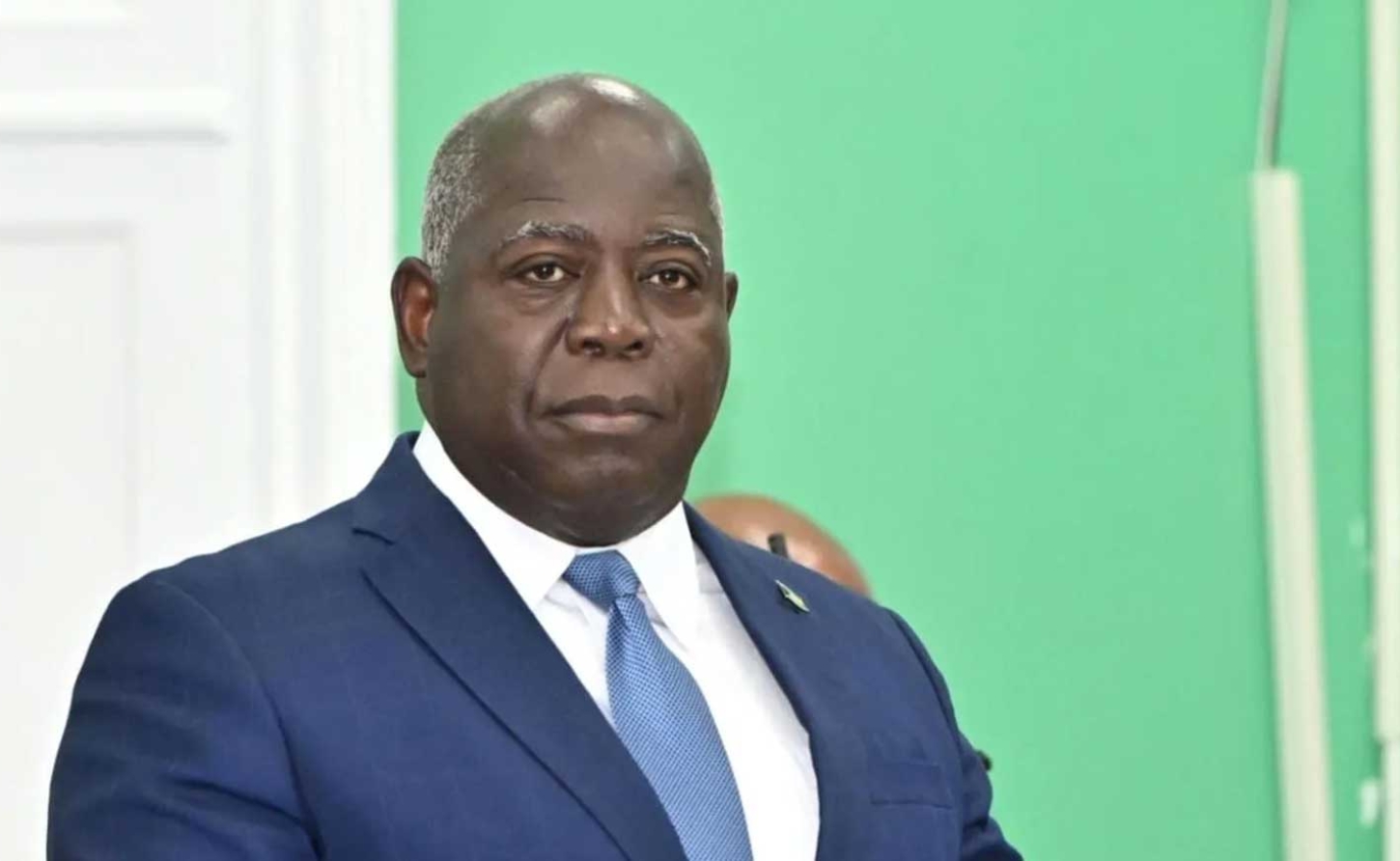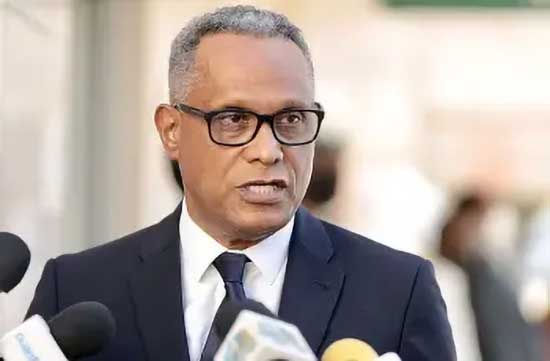BAHAMAS | How Washington Forced Nassau to Abandon Cuban Medical Contracts

NASSAU, Bahamas, June 17, 2025 - The writing was on the wall when Bahamian Health Minister Michel Darville rose in parliament on June 16, 2025, to announce what amounted to a diplomatic surrender disguised as policy reform.
The Bahamas, he declared, is preparing to cancel its current contracts with Cuban health professionals following negotiations with the US government. What Darville presented as a measured response to American concerns was, in reality, the latest casualty in Secretary of State Marco Rubio's scorched-earth campaign against Cuba's international medical missions.

"Those who are not interested in this new arrangement will have time to organize their affairs and return to Cuba," the minister stated—diplomatic speak for choose between your homeland and your livelihood.
The announcement represents a stunning about-face for a government that, just months earlier, was singing Cuba's praises. In April 2025, Darville had traveled to the Cuba Salud event, where he met with his Cuban counterpart Jose Angel Portal Miranda.
Official Cuban media claimed that both representatives "proposed new paths to strengthen alliances aimed at improving health services." Darville had emphasized that his government wished to continue collaborating with Cuban health professionals. Those "new paths," it turns out, led straight through Washington's diplomatic pressure chamber.
The Mathematics of Blockade Survival
Behind the diplomatic niceties lies a financial reality that explains both Cuba's desperation to maintain these programs and America's determination to destroy them. The Cuban government earns significant revenue by sending doctors and other healthcare personnel abroad.
Cuba, which has been under an economic blockade by the United States for the past sixty years, generates $4.9 billion of its total $7 billion in service exports from medical professionals.
The export of medical services has become one of the Cuban regime's most lucrative sources of income, a financial lifeline that helps sustain an economy crippled by decades of US sanctions.
Yet the scale of the operation in the Bahamas—according to Darville, there are currently only 35 Cuban health professionals in the country, most of them biomedical engineers, lab technicians, and radiologists—makes the geopolitical drama seem almost absurd. The Bahamian official stated that the country is facing a shortage of healthcare workers, yet 35 professionals have become pawns in a much larger ideological chess game.
Rubio's Human Trafficking Crusade

These accusations are not new and have been rejected by the Cuban government and many Caribbean leaders, who argue that these programs are essential and comply with international labor standards. But under the Trump administration, what were once diplomatic protests have become economic weapons.
Thousands of Cuban medical personnel serve on missions in dozens of countries, including throughout the Caribbean. The missions are also Cuba’s main source of foreign currency, which is why the Trump administration is going after them as part of its “maximum pressure” policy aimed at regime change.
In February 2025, the US announced visa restrictions for officials involved in the recruitment of Cuban healthcare workers. During a press conference held in Jamaica, Rubio denounced that in many Cuban missions, doctors do not receive their salaries directly and are even deprived of their passports to prevent them from fleeing.
The Secretary of State has described these arrangements as "forced labor" and warned that Caribbean nations participating in these programmes could face visa restrictions as well as potential trade repercussions.
The Anatomy of Capitulation
Bahamas President Philip Davis denied that his cabinet had any knowledge of exploitative practices, but his actions suggest otherwise. Davis met with Rubio in May 2025 to discuss, among other issues, the situation of the Cuban professionals. Following that meeting, the Bahamian government decided to pay the doctors directly—a move that Darville presented as meaningful reform but which activists and former Cuban health collaborators say marks no significant change.
The move follows months of government resistance to fully disclose or acknowledge how much of the doctors' compensation is retained by the employees. When faced with mounting pressure from Washington, the Davis administration chose what appeared to be the path of least resistance: maintain access to Cuban medical expertise while creating enough administrative distance to satisfy American demands.
A Regional Pattern of Pressure
This is not the first time the Cuban government has lost contracts for medical services under US pressure. In 2018, then Brazilian President Jair Bolsonaro canceled the Mais Medicos program, which paid around US $8,000 per doctor. In April 2025, it was revealed that Paraguay had also canceled its medical cooperation agreement with Cuba. The pattern is becoming clear: intense diplomatic pressure followed by grudging compliance from nations dependent on American goodwill.
Yet not all Caribbean leaders have proven as malleable as their Bahamian counterparts. Barbados's Prime Minister Mia Mottley gave a fiery address to parliament, calling the US stance "unfair and unjustified". "We could not get through the pandemic without the Cuban nurses and the Cuban doctors," she said.
Similarly, Saint Vincent and the Grenadines Prime Minister Ralph Gonsalves highlighted the direct effect Cuban doctors have on patient care. "If the Cubans are not there, we may not be able to run the service," he said. "I will prefer to lose my visa than to have 60 poor and working people die".
The defiance reflects a harsh reality that Washington's pressure campaign often ignores: Cuban medical missions provide crucial support to several Caribbean healthcare systems, especially in times of crisis. Cuba provides more medical personnel to the developing world than all the G8 countries combined, filling gaps that would otherwise leave vulnerable populations without access to essential healthcare.
The Uncertain Future
It remains unclear what will happen to the Cuban healthcare workers who choose to stay in the Bahamas, or whether the Cuban government will allow that option. The eight-year exile penalty for those who abandon their missions creates a cruel calculus: serve Cuba's interests abroad or face permanent separation from family and homeland.
Darville indicated that recruitment efforts from other countries, including India, the Philippines, and Ghana, are expected to ramp up as the government diversifies its sources of medical talent.
Yet replacing Cuban medical professionals may prove more challenging than the minister's confident announcement suggests. Cuba's medical education system has produced doctors specifically trained for international service, often with language skills and cultural adaptability that may be difficult to replicate.
For now, the Bahamas has chosen accommodation over confrontation, bending to Washington's will while attempting to maintain access to desperately needed medical expertise. Whether this compromise will satisfy either American demands or Bahamian healthcare needs remains to be seen.
What seems certain is that in the complex geopolitical game between Washington and Havana, small Caribbean nations have discovered they are not players but pieces—moved at the will of greater powers, regardless of their own medical and economic necessities.
The transformation of 35 medical professionals into symbols of ideological warfare may seem disproportionate, but it reflects the broader reality of US-Cuba relations in the Caribbean: every doctor, every contract, and every bilateral agreement has become another front in a conflict that shows no signs of resolution.
For the patients who depend on these professionals, the geopolitics matter far less than the medical expertise—a calculus that may ultimately determine whether the Bahamas' diplomatic gamble succeeds or becomes yet another casualty in America's endless war against Cuban influence.
-30-
